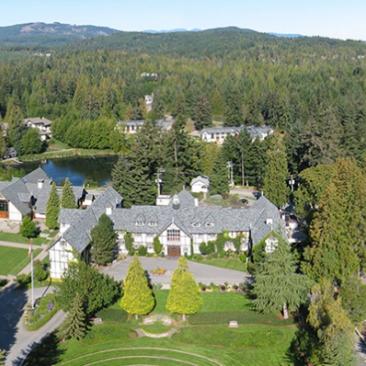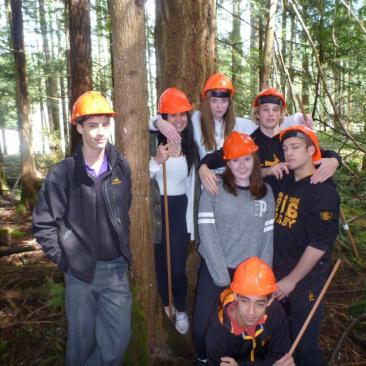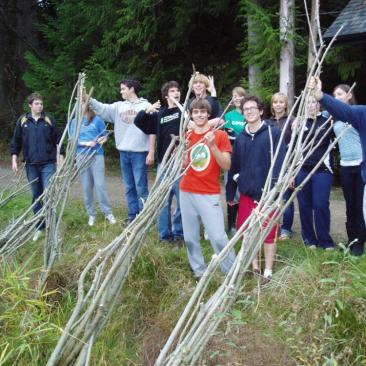“Why wouldn’t we do this? Students here are learning about the responsibility that comes with taking a leadership role, about being accountable for their actions,” Shawnigan’s headmaster, David Robertson, says.
The school, which celebrates its centenary next year, is nestled among lakes and trees on Canada’s Vancouver Island. Most of its 490 students, who come from 28 countries, are boarders.
FSC certification of 64 hectares of the school’s 120-hectare campus came in December 2014 under Ecotrust Canada’s Forest Management Group certificate. It is likely the first and only high school in the world to be FSC certified.
Working where conservation and community economic development meet, Ecotrust Canada’s mission is to design “economic alternatives that benefit people in the places they call home.” It holds group FSC certificates for smallholder members, in effect offering a cost-effective way for small operators to become FSC certified.
“Our goal,” says Satnam Manhas, Ecotrust Canada’s Forest and Ecosystem Services Program Manager, “is to demonstrate that it is possible to provide competitive investment returns on the land while managing forests in a way that protects and repairs full ecosystem function.”
At last count, it had 11 members in its FSC forest management group and about 40 in its chain of custody group of potential buyers.
In a best-practice study, Greenpeace said Ecotrust Canada respects and sometimes even exceeds key FSC principles and criteria. The British Columbia Government recognized three of about 870 woodlot licensees, small community-based forestry operations, for innovation and excellence in forest management in September 2014. Two were Ecotrust Canada Forest Management members.
For more: http://ecotrust.ca/

Ecotrust Canada (see below) did much of the groundwork in preparing Shawnigan for forest certification. Satnam Manhas, Ecotrust Canada’s Forest and Ecosystem Services Program Manager, explains that unlike most other group members, the school “was not a forest operator; they were people trying to do the right thing.”
“The school understood that the forest had a lot more value beyond trees being cut, but did not have the specific expertise required,” Mr. Manhas adds. Among other things, Ecotrust Canada facilitated talks with indigenous communities and assessed the school’s high conservation values in its forest area.
The school manages a species mix of saw and pulp logs. For more than 50 years, small volumes of timber have been harvested when needed. It’s milled on site and used on site for new construction and renovation.

When the school began considering harvesting options for its productive forest stands, seeking certification was a logical step. The school set the bar at the highest level – at the FSC, which was attractive for its balance of social, environmental and economic values, and respect for indigenous people.
Forest stands are used as outdoor classrooms, and students actively participate in stand tending. Timber lot assessment is ongoing, and feeds into the business curriculum.
“First Nation advisors visit the school to show students how to construct willow wattles to prevent soil erosion on fill slopes and in riparian areas. First Nation elders have also revealed a world of edible and medicinal native plants at the school,” Ms. Symon adds.

It’s under Shawnigan’s Living Laboratory umbrella, set up in 2010, that students actively manage the natural resources. It includes a salmon hatchery; a composting and recycling program; and the forestry project.
In 2009, as part of Trees for Tomorrow, a British Columbia initiative designed to make communities green, safe and healthy, Shawnigan planted about 10,000 seedlings on 35 hectares of unproductive, previously logged land on the campus.
The school’s FSC journey is ongoing, and an inspiration for others. “Honoring the environmental awareness of the next generation, which is taking much more responsibility for their environment than ever before, is very appropriate. I think, for us, that’s what stewardship of a forest is about,” adds Mr. Robertson. With schools like Shawnigan, our future is in safe hands.
For more: https://www.shawnigan.ca/

